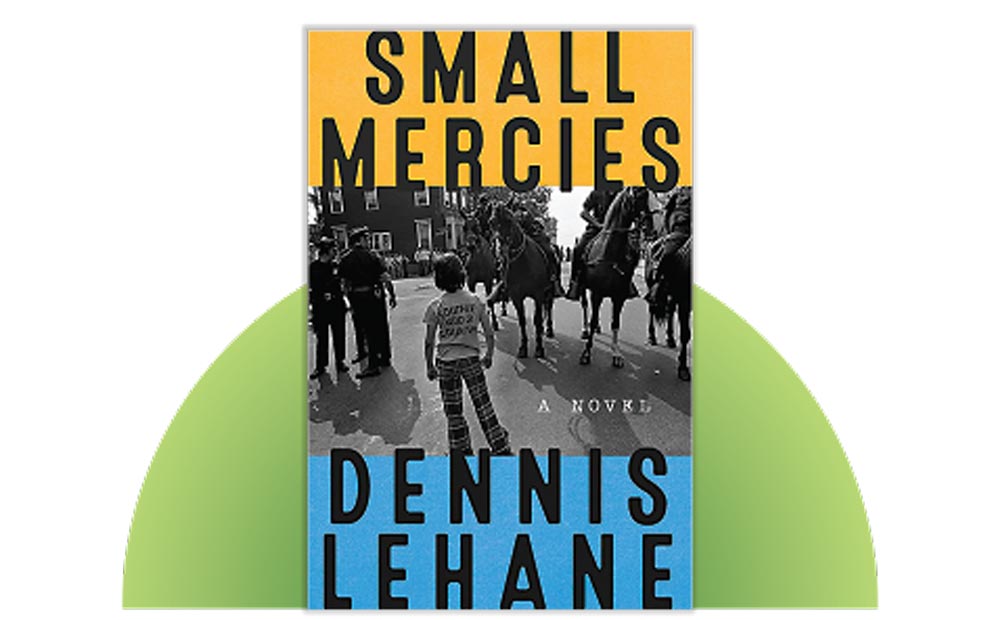Small Mercies explores the intersection of race, poverty, and motherhood. It’s not an easy read, but it’s a good one.
I’m big on historical fiction, so when I saw that Dennis Lehane’s new novel, Small Mercies, was a fictional story set against factual events, I was all in.
In the summer of 1974 a heatwave suffocates Boston, and Mary Pat Fennessy – a parent doing whatever she can to stop the busing program that will lead to desegregation of the inner city’s public schools – has only one source of hope in her life.
Her daughter Jules.
One night, Mary Pat’s daughter doesn’t come home. The next morning, she reads about a young Black man whose body has been found near a subway train in the city. She soon discovers he’s the son of a woman she knows, the only Black health aide at the old folks home where Mary Pat works.
Groveling for clues from the crime family that runs Southie, the Irish American housing project where she has lived her whole life, Mary Pat searches for answers about Jules’ disappearance. She doesn’t care about the Black kid or his mother. Mary Pat has already lost one child to drugs, and she desperately wants to find her daughter.
“She’s fearless, she’s angry, she’s a racist, she’s an alcoholic, and she’s a chain-smoker.” That’s how the author describes his protagonist, which should tell you that this book is not an easy read. From Mary Pat’s sister Big Peg to Bobby Coyne, the detective on the case, all of Lehane’s characters are real and raw and thrust into suspenseful, page-turning situations. The language is authentic to the era, including racial slurs.
A study of poverty and American racism and a heart-breaking story about a mother who has lost everything, Small Mercies explores life and death in the Boston projects on the eve of the desegregation of its public schools. If crime novels are your thing and you’re prepared to challenge yourself with history that will make you cringe, Small Mercies is the book for you.







